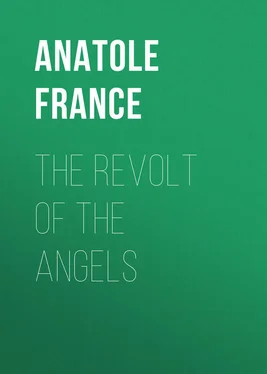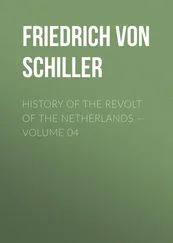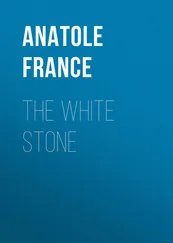Anatole France - The Revolt of the Angels
Здесь есть возможность читать онлайн «Anatole France - The Revolt of the Angels» — ознакомительный отрывок электронной книги совершенно бесплатно, а после прочтения отрывка купить полную версию. В некоторых случаях можно слушать аудио, скачать через торрент в формате fb2 и присутствует краткое содержание. Жанр: foreign_antique, foreign_prose, на английском языке. Описание произведения, (предисловие) а так же отзывы посетителей доступны на портале библиотеки ЛибКат.
- Название:The Revolt of the Angels
- Автор:
- Жанр:
- Год:неизвестен
- ISBN:нет данных
- Рейтинг книги:5 / 5. Голосов: 1
-
Избранное:Добавить в избранное
- Отзывы:
-
Ваша оценка:
- 100
- 1
- 2
- 3
- 4
- 5
The Revolt of the Angels: краткое содержание, описание и аннотация
Предлагаем к чтению аннотацию, описание, краткое содержание или предисловие (зависит от того, что написал сам автор книги «The Revolt of the Angels»). Если вы не нашли необходимую информацию о книге — напишите в комментариях, мы постараемся отыскать её.
The Revolt of the Angels — читать онлайн ознакомительный отрывок
Ниже представлен текст книги, разбитый по страницам. Система сохранения места последней прочитанной страницы, позволяет с удобством читать онлайн бесплатно книгу «The Revolt of the Angels», без необходимости каждый раз заново искать на чём Вы остановились. Поставьте закладку, и сможете в любой момент перейти на страницу, на которой закончили чтение.
Интервал:
Закладка:
Monsieur Sariette was gazing vacantly about him. It was the third morning after his adventurous night in the library. Being, however, thus called upon by the venerable ecclesiastic, he pulled himself together and replied:
"On this subject we may with advantage consult Molanus, De Historia Sacrarum Imaginum et Picturarum , in the edition given us by Noël Paquot, dated Louvain, 1771; Cardinal Frederico Borromeo, De Pictura Sacra , and the Iconography of Didron; but this last work must be read with caution."
Having thus spoken, Monsieur Sariette relapsed into silence. He was pondering on his devastated library.
"On the other hand," continued Abbé Patouille, "since an example of the holy anger of the angels was necessary in this chapel, the painter is to be commended for having depicted for us in imitation of Raphael the heavenly messengers who chastised Heliodorus. Ordered by Seleucus, King of Syria, to carry off the treasures contained in the Temple, Heliodorus was stricken by an angel in a cuirass of gold mounted on a magnificently caparisoned steed. Two other angels smote him with rods. He fell to earth, as Monsieur Delacroix shows us here, and was swallowed up in darkness. It is right and salutary that this adventure should be cited as an example to the Republican Commissioners of Police and to the sacrilegious agents of the law. There will always be Heliodoruses, but, let it be known, every time they lay their hands on the property of the Church, which is the property of the poor, they shall be chastised with rods and blinded by the angels."
"I should like this painting, or, better still, Raphael's sublimer conception of the same subject, to be engraved in little pictures fully coloured, and distributed as rewards in all the schools."
"Uncle," said young Maurice, with a yawn, "I think these things are simply ghastly. I prefer Matisse and Metzinger."
These words fell unheeded, and old Guinardon from his ladder held forth:
"Only the primitives caught a glimpse of Heaven. Beauty is only to be found between the thirteenth and fifteenth centuries. The antique, the impure antique, which regained its pernicious influence over the minds of the sixteenth century, inspired poets and painters with criminal notions and immodest conceptions, with horrid impurities, filth. All the artists of the Renaissance were swine, including Michael-Angelo."
Then, perceiving that Gaétan was on the point of departure, Père Guinardon assumed an air of bonhomie, and said to him in a confidential tone:
"Monsieur Gaétan, if you're not afraid of climbing up my five flights, come and have a look at my den. I've got two or three little canvases I wouldn't mind parting with, and they might interest you. All good, honest, straightforward stuff. I'll show you, among other things, a tasty, spicy little Baudouin that would make your mouth water."
At this speech Gaétan made off. As he descended the church steps and turned down the Rue Princesse, he found himself accompanied by old Sariette, and fell to unburdening himself to him, as he would have done to any human creature, or indeed to a tree, a lamp-post, a dog, or his own shadow, of the indignation with which the æsthetic theories of the old painter inspired him.
"Old Guinardon overdoes it with his Christian art and his Primitives! Whatever the artist conceives of Heaven is borrowed from earth; God, the Virgin, the Angels, men and women, saints, the light, the clouds. When he was designing figures for the chapel windows at Dreux, old Ingres drew from life a pure, fine study of a woman, which may be seen, among many others, in the Musée Bonnat at Bayonne. Old Ingres had written at the bottom of the page in case he should forget: 'Mademoiselle Cécile, admirable legs and thighs' – and so as to make Mademoiselle Cécile into a saint in Paradise, he gave her a robe, a cloak, a veil, inflicting thus a shameful decline in her estate, for the tissues of Lyons and Genoa are worthless compared with the youthful living tissue, rosy with pure blood; the most beautiful draperies are despicable compared with the lines of a beautiful body. In fact, clothing for flesh that is desirable and ripe for wedlock is an unmerited shame, and the worst of humiliations"; and Gaétan, walking carelessly in the gutter of the Rue Garancière, continued: "Old Guinardon is a pestilential idiot. He blasphemes Antiquity, sacred Antiquity, the age when the gods were kind. He exalts an epoch when the painter and the sculptor had all their lessons to learn over again. In point of fact, Christianity has run contrary to art in so much as it has not favoured the study of the nude. Art is the representation of nature, and nature is pre-eminently the human body; it is the nude."
"Pardon, pardon," purred old Sariette. "There is such a thing as spiritual, or, as one might term it, inward beauty, which, since the days of Fra Angelico down to those of Hippolyte Flandrin, Christian art has – "
But Gaétan, never hearing a word of all this, went on hurling his impetuous observations at the stones of the old street and the snow-laden clouds overhead:
"The Primitives cannot be judged as a whole, for they are utterly unlike each other. This old madman confounds them all together. Cimabue is a corrupt Byzantine, Giotto gives hints of powerful genius, but his modelling is bad, and, like children, he gives all his characters the same face. The early Italians have grace and joy, because they are Italians. The Venetians have an instinct for fine colour. But when all is said and done these exquisite craftsmen enamel and gild rather than paint. There is far too much softness about the heart and the colouring of your saintly Angelico for me. As for the Flemish school, that's quite another pair of shoes. They can use their hands, and in glory of workmanship they are on a level with the Chinese lacquer-workers. The technique of the brothers Van Eyck is a marvel, but I cannot discover in their Adoration of the Lamb the charm and mystery that some have vaunted. Everything in it is treated with a pitiless perfection; it is vulgar in feeling and cruelly ugly. Memling may touch one perhaps; but he creates nothing but sick wretches and cripples; under the heavy, rich, and ungraceful robing of his virgins and saints one divines some very lamentable anatomy. I did not wait for Rogier van der Wyden to call himself Roger de la Pasture and turn Frenchman in order to prefer him to Memling. This Rogier or Roger is less of a ninny; but then he is more lugubrious, and the rigidity of his lines bears eloquent testimony to his poverty-stricken figures. It is a strange perversion to take pleasure in these carnivalesque figures when one can have the paintings of Leonardo, Titian, Correggio, Velasquez, Rubens, Rembrandt, Poussin, or Prud'hon. Really it is a perverted instinct."
Meanwhile the Abbé Patouille and Maurice d'Esparvieu were strolling leisurely along in the wake of the esthete and the librarian. As a general rule the Abbé Patouille was little inclined to talk theology with laymen, or, for that matter, with clerics either. Carried away, however, by the attractiveness of the subject, he was telling the youthful Maurice all about the sacred mission of those guardian angels which Monsieur Delacroix had so inopportunely excluded from his picture. And in order to give more adequate expression to his thoughts on such lofty themes, the Abbé Patouille borrowed whole phrases and sentences from Bossuet. He had got them up by heart to put in his sermons, for he adhered strongly to tradition.
"Yes, my son," he was saying, "God has appointed tutelary spirits to be near us. They come to us laden with His gifts. They return laden with our prayers. Such is their task. Not an hour, not a moment passes but they are at our side, ready to help us, ever fervent and unwearying guardians, watchmen that never slumber."
Читать дальшеИнтервал:
Закладка:
Похожие книги на «The Revolt of the Angels»
Представляем Вашему вниманию похожие книги на «The Revolt of the Angels» списком для выбора. Мы отобрали схожую по названию и смыслу литературу в надежде предоставить читателям больше вариантов отыскать новые, интересные, ещё непрочитанные произведения.
Обсуждение, отзывы о книге «The Revolt of the Angels» и просто собственные мнения читателей. Оставьте ваши комментарии, напишите, что Вы думаете о произведении, его смысле или главных героях. Укажите что конкретно понравилось, а что нет, и почему Вы так считаете.











